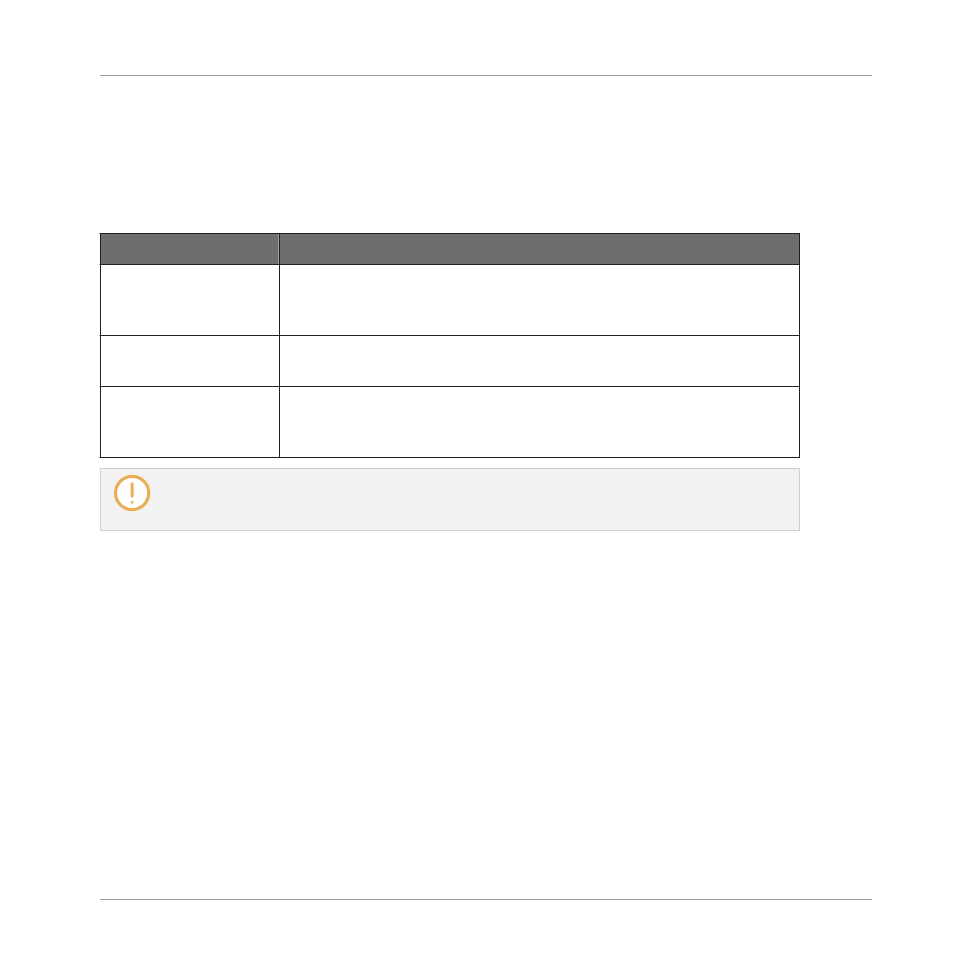Location and name of your recorded samples, 6, location, And name of your recorded samples – Native Instruments MASCHINE MIKRO MK3 Groove Production Studio (Black) User Manual
Page 734: 6 location and name of your recorded samples

▪
Click the little cross at the top right corner of a mini waveform to delete this particular re-
cording.
▪
Drag any mini waveform to another Sound slot to load it in that Sound.
Right-click (macOS: [Ctrl]-click) any mini waveform in the Audio Pool to open a context menu
with the following commands:
Command
Description
Delete
Deletes the displayed take from the Audio Pool. This has the same
effect as clicking the little cross at the top right corner of the
selected mini waveform in the Audio Pool.
Remove unused
recordings
Deletes from the Audio Pool all takes that are not currently mapped
to any Zone in the
Zone
page.
Map recordings to
zones
Automatically maps all recordings of the Audio Pool to Zones in the
Zone
page. The created Zones are put on adjacent keys and cover the
entire velocity range. Any existing Zones will be replaced.
All recordings (takes) in the Audio Pool are saved with the Project. When you close the current
Project, all of your takes are saved as audio files and available for later use in the Audio Pool, un-
less you explicitly delete them (via the MASCHINE software or in your operating system).
17.2.6 Location and Name of Your Recorded Samples
By default, recorded Samples (takes) are saved in the Recordings subfolder of your Standard
User Directory, as defined on the
User
pane of the
Library
page in the
Preferences
panel (see
3.6.4, Preferences – Default Page
). If you activate the
Prefer Project Folder
option on the
General
page of the
Preferences
panel (see
3.6.1, Preferences – General Page
), recorded
Samples will be saved instead in a Recordings subfolder of the folder where your current
Project is saved.
Recorded Samples are automatically named using the following scheme:
[YYMMDD]T[HHMMSS].wav
In the name above, [YYMMDD] stands for the current date (year, month, day, all 2-digit num-
bers) and [HHMMSS] for the current time (hours, minutes, seconds, all 2-digit numbers).
Sampling and Sample Mapping
Recording Audio
MASCHINE MIKRO - Manual - 734
